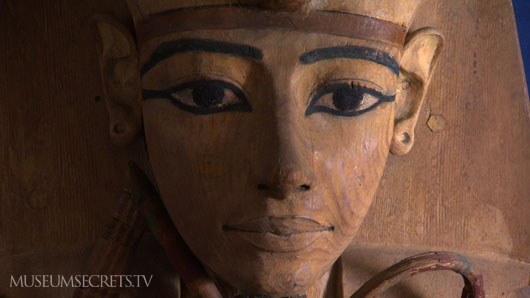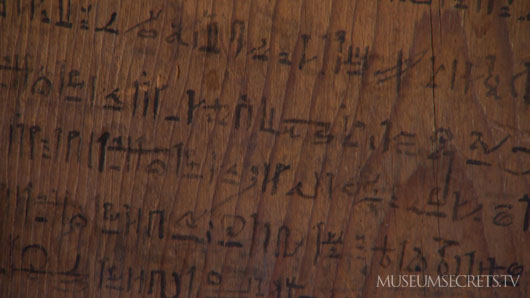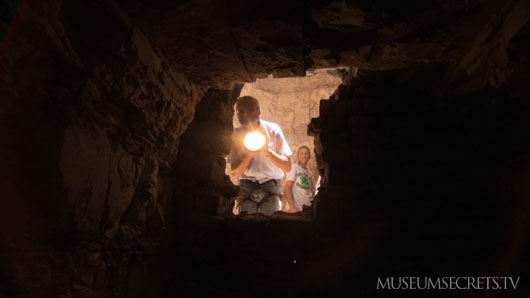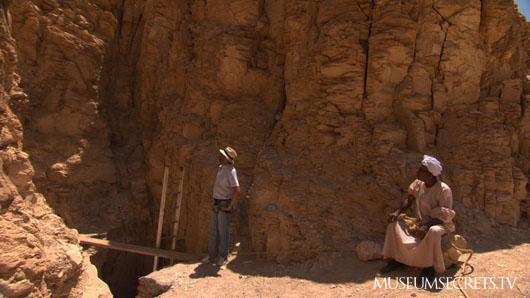Why was he buried in a wooden coffin?
And where are his treasures of jewels and gold?
Ramesses the Second is arguably the greatest Pharaoh, and perhaps the Pharaoh with the biggest ego. He built many towering monuments to celebrate his own majesty. One might expect to find his mummy in an elaborate golden sarcophagus encrusted with precious jewels.
But no. Ramesses' sarcophagus is a simple coffin made of wood.
Why such a modest coffin for such an immodest Pharaoh?
The secret is revealed in the premiere broadcast of Museum Secrets: Inside the Egyptian Museum.
The Secret of Ramesses' Gold
Historians believe that Ramesses was entombed along with a vast quantity of gold and precious gems. But when his tomb was opened in the nineteenth century... it was empty. Who stole Ramesses' treasure? Egyptologist Nigel Strudwick believes he knows. And he tells us in this Web Exclusive Video: Stolen Treasure.
Buried Secrets
Discover the hidden locations of the tombs of the pharaohs by viewing our Interactive Feature: Valley of the KIngs.
Further Questions
Ramesses' mummy was only one of many that was moved from its original tomb. So many were moved and hidden that when a mummy is discovered its identity is likely to be a mystery. Find out how Dr. Zahi Hawass discovered the identity of one such mummy on his web page: The Search for Hatshepsut.
































0 Comments
Add a Comment
No Comments. Why don't you start a discussion?